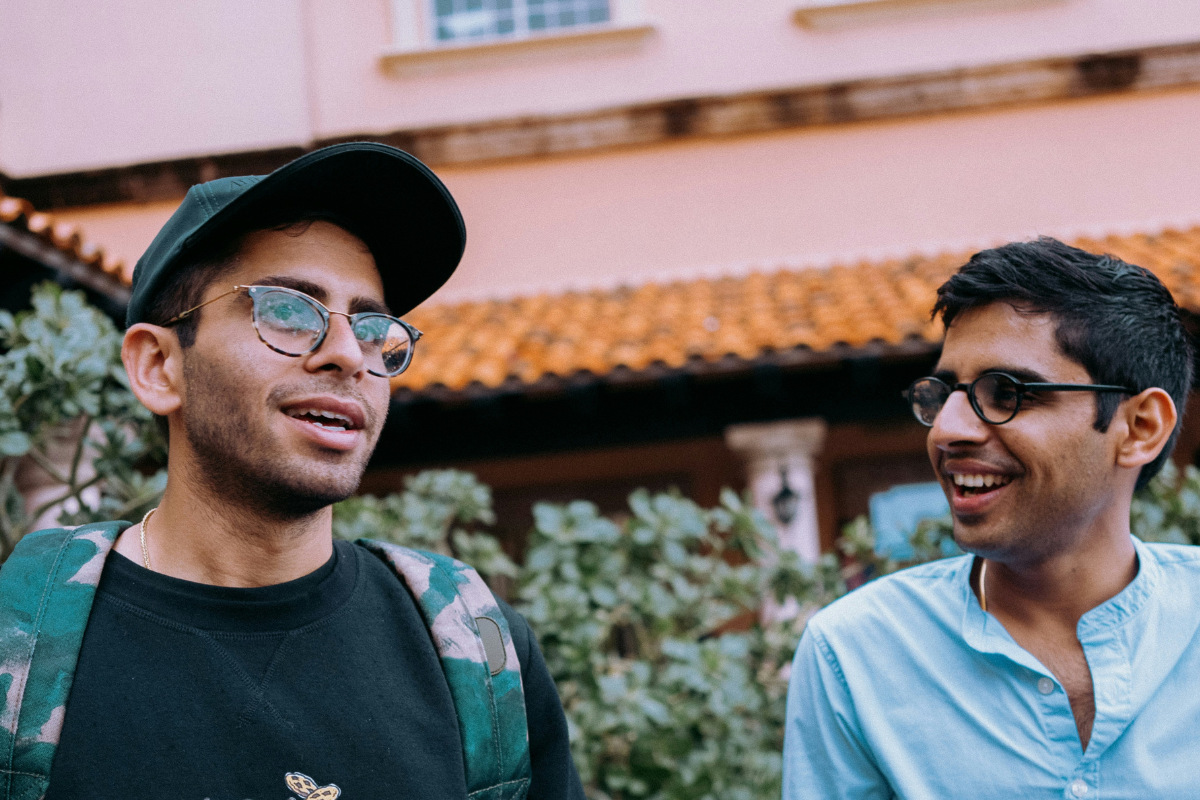In 2023, Leonard embarked on a month-long “quest” to make new friends and reconnect with old ones. Writing for The Washington Post, he recounted his experiences joining run clubs, hiking, texting instead of calling, and even signing up to play pickleball.
While Leonard might be unique in publicly sharing his social experiment, he’s not alone in his struggle.
Like many, he realised that after having kids and moving cities, he’d drifted away from friends and socialising had dropped off his priority list. As pointed out by the experts he interviewed, he did this at his peril because social connection does wonders for our physical and mental health.
How friendship boosts men’s health
According to the Australian Men’s Health Forum, men with mates have been found to live longer, experience less loneliness and have a decreased risk of mental illnesses. In fact, having no meaningful relationships is as bad for health as smoking 15 cigarettes a day.
Women also experience the positive impacts of friendship, with a University of Queensland study finding people in their 40s and 50s were less likely to develop chronic conditions.
A survey studying friendship over the past three decades found that men’s friendship circles were shrinking more than women’s, reporting smaller social networks and naming fewer ‘close’ friends.
The difference between male and female friendships
Dr Robin Dunbar, evolutionary psychologist and friendship researcher, explains that women make friends based on who someone is and men are more focused on what they do.
“Men’s friendships are more clubby, and in some sense anonymous – it matters more what you are than who you are,” he explained.
“In other words, do you belong to my club? If you do, that qualifies you to be a friend, and anybody who ticks that box can be substituted in…”
With this mentality, men’s friendships can become activity-based and happen in groups, which means they can avoid deeper conversations.
That’s not to say men shouldn’t have shared hobbies or hang out in groups, but when they’re not meaningfully connecting with friends, counsellor Justin Pere warns it can impact their romantic relationships.
“The over-reliance on romantic partners for emotional support can strain relationships,” he said.
“It’s vital to cultivate a community for varied perspectives and support, yet many males often press forward in their romantic relationships with the expectation that a primary partner can and should meet all of their emotional needs.”
Why men struggle to form close friendships
In trying to understand the friendship gap between men and women, experts point to several factors, with ongoing societal pressures and gender expectations having a lot to answer for.
Traditionally, men have been discouraged from vulnerability and expressing emotions, instead equating masculinity with strength, competitiveness and stoicism. According to a Relationships Australia report, men were more likely to be asked to help with physical tasks but when it came to emotional support, people opted for female figures like their mothers or sisters. In turn, men reported feeling more socially and emotionally lonely and preferring not to talk about their problems.
On top of that, we’ve witnessed a drop in civic, religious, and community organisations, which means fewer opportunities to meet and socialise. If men are trying to make friends with a colleague, they come up against further barriers. People are working more hours (decreasing their social time), not heading into the office, and switching jobs more often.
If a man defied these hurdles and made a friend early in life, just like Leonard, they might find it tricky to sustain meaningful friendships. Men’s health organisation Healthy Male discovered the loneliest age group was middle-aged men (35-49 years). They’re about three times more likely to feel high-level loneliness than men aged over 65, showing the “friendship recession” happens a lot earlier than many of us think.
How can men deepen their connections?
While we’ve reported some concerning facts, we’ve got good news – people want to buck the trends.
Run clubs are exploding in popularity, the imperfects, a podcast about vulnerability hosted by three men regularly hits #1 on the charts, and the Tough Guy Book Club connects men across the country.
If you’re on the lookout for new friends, or know someone who is, we’ve asked Andrew, Relationships Australia NSW Practice Specialist Group Work and Community Education, for his top tips on getting started:
- Review your connections: Look at your mobile phone contacts and reflect on what friendships you would like to develop.
- Take the initiative: Reach out to those people in your contacts list and arrange a time to meet to chat. Good chats often happen while you are having a cup of coffee/tea together or by going on a walk together. Often men leave the initiation to others to make these connections happen.
- Find shared interests: Men and women approach friendships quite differently and so men tend to bond over activities and hobbies, rather than conversations. Engage in a shared activity, instead of passive hangouts like watching sports/TV.
- Be curious: Discuss some of the big issues people face in life by asking deeper questions of your friends. Being present cultivates a deep friendship where honesty and vulnerability are encouraged.
- Follow up: Within a few days, organise another time to meet, so that you don’t forget and grow apart.
- Regular check-ins: Instead of only talking when catching up in person, foster more frequent conversation. Reaching out to friends and acquaintances often means more to those people than we realise, so press send on that message you’ve been thinking about.
Remember, quality over quantity counts. You don’t have to start a major pursuit like Leonard to ignite connections. When it comes to relationships; just a few healthy, meaningful friendships can have a significant impact on wellbeing.
Support for men is always available at Relationships Australia NSW. We offer individual counselling, Men and Relationships workshop, Managing Strong Emotions workshop, and resources for Proud Relationships.
Related Services & Workshops

Group Workshops.Individuals.Communication.LGBTQIA+
Proud Relationships
Led by an LGBTQIA+ facilitator and tailored especially for the LGBTQIA+ community, Proud Relationships will help you build the foundations for strong relationships – both with yourself, and those around you.

Group Workshops.Individuals.Mental Health
Managing Strong Emotions
Our emotions are a crucial part of healthy lives and relationships, but at times, we may feel overwhelmed by them. Anger, grief and jealousy are just some of the examples our experienced facilitators can help you manage, if they are having a negative impact on your relationships and wellbeing.






